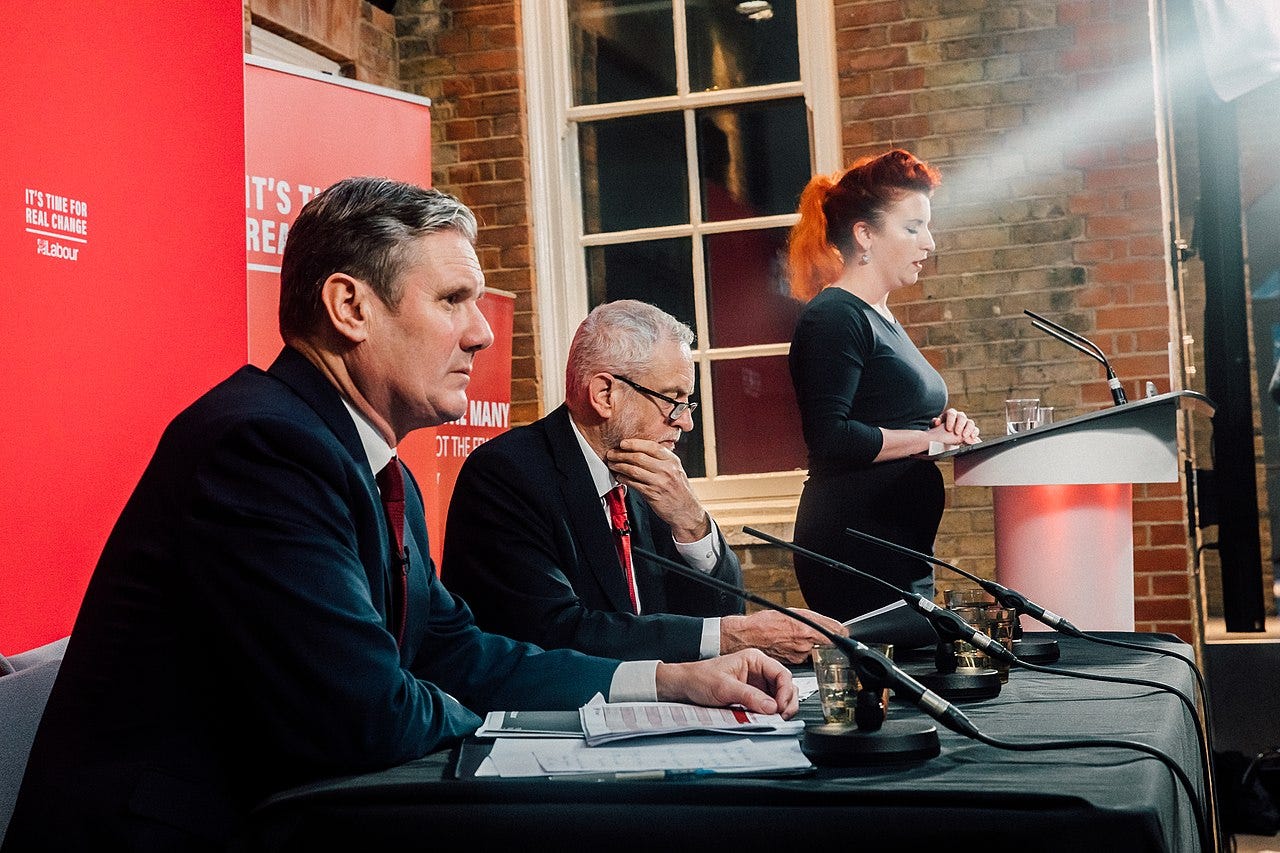
It is very strange to think that within eighteen months Britain could have its most left-wing government since the late 1970s and a large part of the British left will not be happy. That left will not be happy because Keir Starmer is not Jeremy Corbyn; at its core it does not run much deeper than that.
What the section of the left that invested so much in Corbyn – that saw him as a once-in-a-lifetime chance to win a radical socialist government – want is to be proved right in having backed their outsider candidate as a vehicle for change. Having been roundly rejected by the electorate in 2019, Starmer winning removes another small part of the layers between the far left and confronting that reality, and shows that the situation they disputed endures; that Labour leaders win that they go to the centre, and that there is no mass constituency in England for radical left politics.
It is ironic that throughout their era Corbynites frequently defended their man as ‘a mainstream social democrat’ for in that case they should love Keir Starmer. Keir Starmer is mainstream social democracy personified, cut from the same cloth as Olaf Scholz and Anthony Albanese, moderately redistributionist technocrats of the managerial class. Instead, the Corbynites despise him to the point of pathology, which suggests that their enthusiasm for mainstream social democracy is only as an alibi for something else.
We don’t have to take their arguments as to why they dislike Starmer in good faith – theirs is motivated reasoning, departing from the position that Starmer is always bad as a means to defend the honour of Jeremy Corbyn.
Yet it’s still worth clarifying that Corbyn was never a mainstream social democrat. It’s true that some of Corbyn’s workers’ rights and commitment to state provision bore a more familiar European centre-left hue, but Starmer has retained many of those anyway, and his focus on winning power means that some of them may even actually come to pass.
Where Corbyn broke from social democracy definitively was on foreign policy. Mainstream European social democrats tend, for both historical and current reasons, to be rather keen on NATO. In other words, Russia. Indeed, it sometimes seems that the last years have been uniquely designed to show Corbyn’s unsuitability for high office, with the pandemic – he was one of the few London Labour MPs to have refrained from confirming himself to be vaccinated – and the Russian invasion of Ukraine. Would Corbyn have sent the Russian missiles back for testing?



